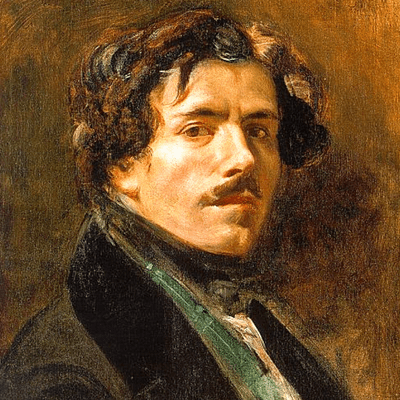
September 10, 2024
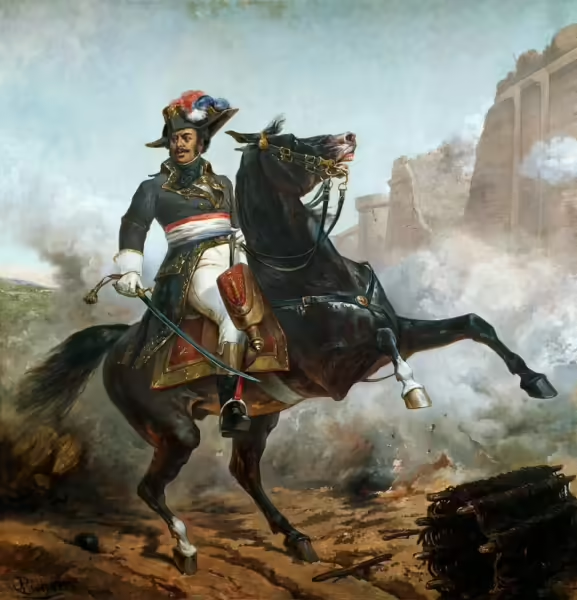
It’s safe to say that Thomas-Alexandre Dumas Davy de la Pailleterie isn’t a household name. But the works he inspired — such as The Three Musketeers and The Count of Monte Cristo — certainly are.
Thomas-Alexandre was born into slavery but went on to lead an incredible life. He fought under the Marquis de Lafayette, rose through the ranks to become a general under Napoleon, and fathered France’s greatest novelist of all time.
Today, we look at his story — including both what and what not to do to best preserve your legacy.

Thomas-Alexandre Dumas was born in 1762 as a mixed race child — his father was a French nobleman, his mother a Haitian slave. Because of his mother’s status, he was technically born a slave, and this technicality would later be taken advantage of by his father.
When seeking passage back to mainland France, Dumas’ father sold him to a slaver who was heading to Europe — but importantly, the sale included a right of repurchase. This meant that not only did his father get the funds he needed to buy a trip to France, but Dumas got a “free” trip as a slave.
Once they arrived in Europe, his father made good on the repurchase agreement. He then arranged for Dumas to be sent to Paris, bringing him into French territory and making him a free man.
Dumas was 14 when he arrived in Paris, and his father lavished him with a gentleman’s lifestyle. He saw that his son was well-educated, trained in swordsmanship and horse riding, and socialized in the manner of a true French aristocrat. Dumas enjoyed his life of leisure, but it wouldn’t last for long…
At age 24, Dumas joined the French military as a private in the Queen’s Dragoons. Despite his humble start, he proved a menace on the battlefield — on one occasion, he and four other men overran a garrison of 50 men. On another occasion, he and his men scaled the icy cliffs of Mont Cenis in the Alps to surprise an enemy battalion and take 1,500 men as prisoners.
Dumas’ Austrian opponents began to refer to him as the Schwarzer Teufel (the “black devil”), and the name stuck. His notoriety led to a meteoric rise in France’s military, and he quickly became brigadier-general, divisional general, and finally general-in-chief of a French army. Soon enough, he’d be working alongside none other than Napoleon himself.

In 1798, Dumas was sent east to serve under Napoleon in his Egyptian campaign. Initially, the two men respected each other’s valor — but the niceties were short-lived.
Despite a quick string of initial victories, France’s campaign in Egypt was ultimately disastrous, and Dumas’ relationship with Napoleon fared no better — Dumas was vocal in his criticism of Napoleon’s tactics, and Napoleon had no time for Dumas’ insubordination. Tensions came to a boil when Napoleon heard rumors that Dumas was planning mutiny, and he ordered Dumas to be sent home unceremoniously.
But as fate would have it, Dumas’ ship never made it back to France…
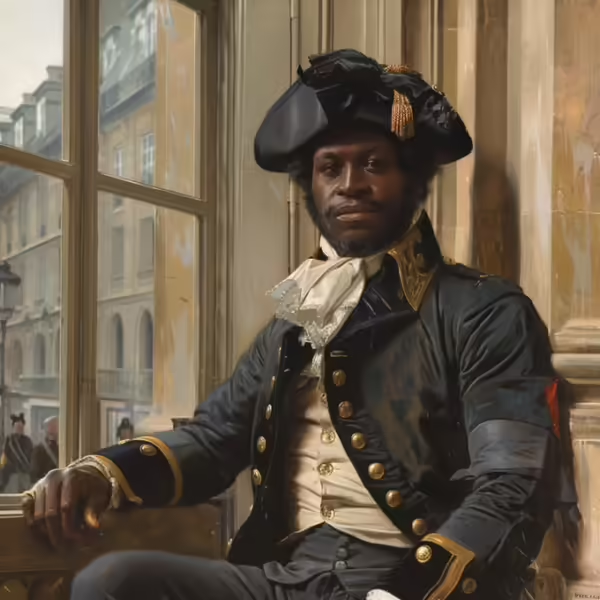
On his trip back to France home, Dumas was caught in a storm and shipwrecked in Naples, where he was promptly captured and imprisoned. He was left malnourished and cut off from the outside world for two years, and at the time of his release he was half deaf, nearly blind, and partially paralyzed from his experience.
He returned to France sickly and impoverished, and his last years were characterized by pain and obscurity. He died of stomach cancer five years later, and only one of his three children survived childhood — by all accounts, it seemed as though his entire legacy lay in ruin.
But the one son who did survive was shaped immensely by his father’s experience. Alexandre Dumas grew up enamored by his father’s heroics, and he devoted his life to writing — he desired to immortalize the legacy of his father just as much as he desired to make a name for himself.
On both accounts, he succeeded immensely — Alexandre Dumas became France’s best-selling author, publishing more than 100,000 pages of material in his lifetime. His magnum opus, The Count of Monte Cristo, is arguably France’s greatest novel of all time, and is a story directly inspired by the life of his father.
The Black Devil’s career, while itself extraordinary, was only the prelude for what was to come. His life shows that even if you die when all seems bleak, your story is far from over — in fact, it might just be getting started, taking on new life through those who come after you.
As you can imagine, so much can be learned from Dumas’ life — here are just 3 main takeaways.
Fortune favors the bold. As a soldier, it was Dumas’ courage and daring that built his reputation and led to his rapid ascent through the ranks. He was bold, but never reckless — his moves on the battlefield were calculated risks, and they paid off more often than not. This was recognized and earned him not just individual honors, but the command of an army.
Dumas’ major mistake was that of Icarus — flying too close to the sun. Regardless of how accurate his critiques of Napoleon were or were not, he clearly went too far in openly criticizing his superior. Napoleon likely would have respected Dumas had his concerns been communicated in private, but Dumas’ overt disrespect of Napoleon’s tactics eventually led to his downfall. In the words of Robert Greene, “never outshine the master.”
It’s easy to imagine the despair Dumas must have felt at the end of his life. Traveling to France, gaining his freedom, rising through the ranks — what was it all for? In the end he died sickly and destitute. But Dumas’ story proves that the real legacy you leave behind might be completely unexpected.
At the time of his death, Dumas never could have guessed that his son would go on to become France’s greatest author — and that it was precisely his miseries (for ex, his imprisonment) that would drive the plot of a novel like Monte Cristo. His story proves that despair is never merited, as the fruit of our seemingly pointless lives might be greater than we could ever imagine.
My friend Sean Berube helped write a large portion of this email, so if you enjoyed this then be sure to follow him on X.
In the meantime, if you enjoy my work and want to show your support, the best way to do so is by purchasing a fresh bag of coffee from Imperium Coffee. All the proceeds go towards making more content like this and helping others learn from the examples of great men.
Thanks for making it this far, and I’ll see you on this week’s Spaces!
Ad finem fidelis,
Evan